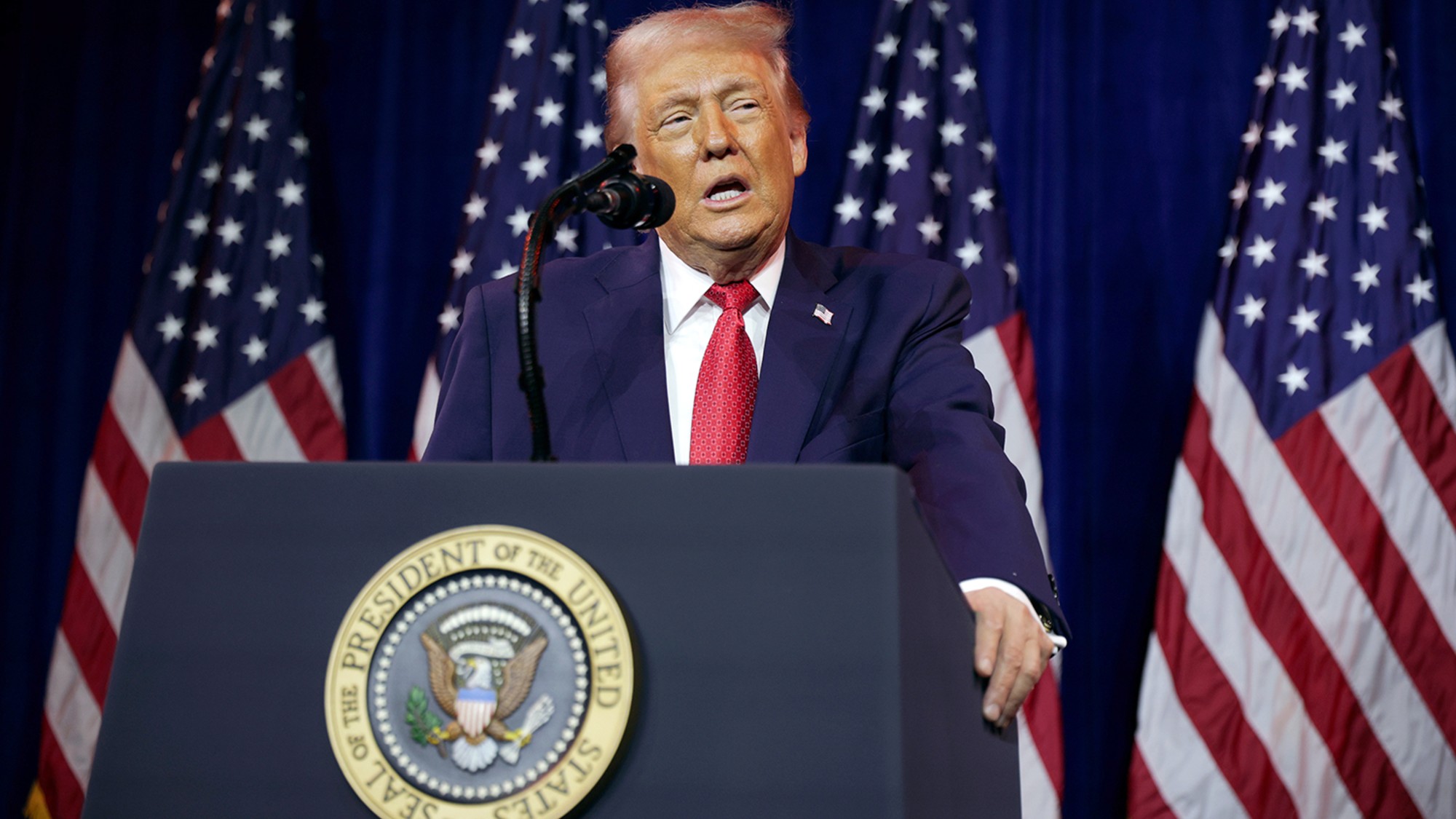Why the Senate is fundamentally anti-democratic
The outsized influence of small states has undermined the ideal of "one person, one vote"


Adam Liptak at The New York Times has put together a long, fascinating article on the disproportionate influence enjoyed in the Senate by the least populous states, which has grown so much in recent years that the upper chamber has become one of the least democratic institutions in the developed world.
Small states like Vermont and Wyoming not only receive much more federal money (as measured in dollars per person), but can wield immense power to stymie largely liberal reforms on a host of issues — including gun control, immigration, and campaign finance — that often have the support of senators who represent a clear majority of the country. According to Liptak:
To be sure, some scholars and members of Congress view the small-state advantage as a vital part of the constitutional structure and say the growth of that advantage is no cause for worry. Others say it is an authentic but insoluble problem.
What is certain is that the power of the smaller states is large and growing. Political scientists call it a striking exception to the democratic principle of "one person, one vote." Indeed, they say, the Senate may be the least democratic legislative chamber in any developed nation.
Behind the growth of the advantage is an increase in population gap between large and small states, with large states adding many more people than small ones in the last half-century. There is a widening demographic split, too, with the larger states becoming more urban and liberal, and the smaller ones remaining rural and conservative, which lends a new significance to the disparity in their political power. [The New York Times]
According to one metric, the voting power of a senator from Wyoming is 66 times greater than a senator from California — one of the highest such disparities in the developed world, outdone only by legislatures in Argentina, Brazil, and Russia. To think about it another way, California's 38 million residents have only two senators, compared with 44 senators for the 38 million people living in the 22 smallest states.
The Week
Escape your echo chamber. Get the facts behind the news, plus analysis from multiple perspectives.

Sign up for The Week's Free Newsletters
From our morning news briefing to a weekly Good News Newsletter, get the best of The Week delivered directly to your inbox.
From our morning news briefing to a weekly Good News Newsletter, get the best of The Week delivered directly to your inbox.
As Liptak notes, small states are supposed to have a disproportionate amount of power. The Great Compromise of 1787, which paved the way for the creation of the United States, was designed to protect smaller states from the tyranny of the majority. But the problem has grown to such an extent that some liberal groups are calling for change.
It won't be easy. The Senate's structure is baked into the Constitution, which would require a constitutional convention to change.
Another possibility is reforming the filibuster, which has given senators from small states even more power. "While the Framers hoped for a slow-moving Senate, they didn't design it with a supermajority requirement in mind," says Jamelle Bouie at The American Prospect. "The filibuster is an extra-constitutional innovation. Moreover, there's a difference between holding legislation (or nominees) for further debate, and using the difficulty of attaining a supermajority to kill legislation outright, even it has ample support from majorities in both chambers of Congress."
A free daily email with the biggest news stories of the day – and the best features from TheWeek.com
Ryu Spaeth is deputy editor at TheWeek.com. Follow him on Twitter.
-
 Why Saudi Arabia is muscling in on the world of anime
Why Saudi Arabia is muscling in on the world of animeUnder the Radar The anime industry is the latest focus of the kingdom’s ‘soft power’ portfolio
-
 Scoundrels, spies and squires in January TV
Scoundrels, spies and squires in January TVthe week recommends This month’s new releases include ‘The Pitt,’ ‘Industry,’ ‘Ponies’ and ‘A Knight of the Seven Kingdoms’
-
 Venezuela: The ‘Donroe doctrine’ takes shape
Venezuela: The ‘Donroe doctrine’ takes shapeFeature President Trump wants to impose “American dominance”
-
 The billionaires’ wealth tax: a catastrophe for California?
The billionaires’ wealth tax: a catastrophe for California?Talking Point Peter Thiel and Larry Page preparing to change state residency
-
 Bari Weiss’ ‘60 Minutes’ scandal is about more than one report
Bari Weiss’ ‘60 Minutes’ scandal is about more than one reportIN THE SPOTLIGHT By blocking an approved segment on a controversial prison holding US deportees in El Salvador, the editor-in-chief of CBS News has become the main story
-
 Has Zohran Mamdani shown the Democrats how to win again?
Has Zohran Mamdani shown the Democrats how to win again?Today’s Big Question New York City mayoral election touted as victory for left-wing populists but moderate centrist wins elsewhere present more complex path for Democratic Party
-
 Millions turn out for anti-Trump ‘No Kings’ rallies
Millions turn out for anti-Trump ‘No Kings’ ralliesSpeed Read An estimated 7 million people participated, 2 million more than at the first ‘No Kings’ protest in June
-
 Ghislaine Maxwell: angling for a Trump pardon
Ghislaine Maxwell: angling for a Trump pardonTalking Point Convicted sex trafficker's testimony could shed new light on president's links to Jeffrey Epstein
-
 The last words and final moments of 40 presidents
The last words and final moments of 40 presidentsThe Explainer Some are eloquent quotes worthy of the holders of the highest office in the nation, and others... aren't
-
 The JFK files: the truth at last?
The JFK files: the truth at last?In The Spotlight More than 64,000 previously classified documents relating the 1963 assassination of John F. Kennedy have been released by the Trump administration
-
 'Seriously, not literally': how should the world take Donald Trump?
'Seriously, not literally': how should the world take Donald Trump?Today's big question White House rhetoric and reality look likely to become increasingly blurred